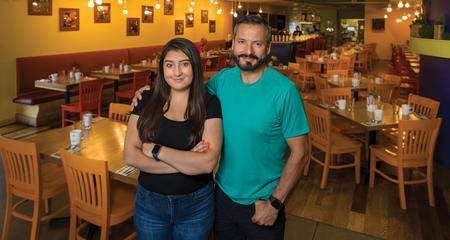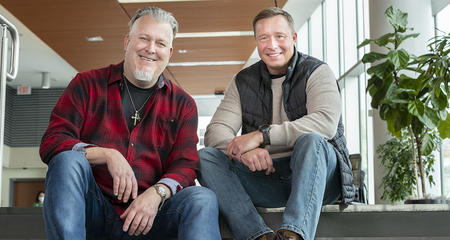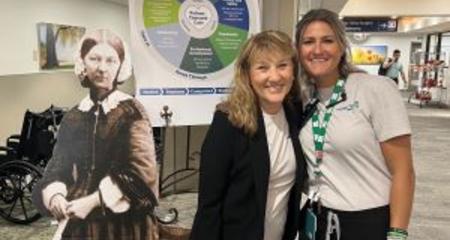I haven’t received the diagnosis of cancer but I have delivered it on many occasions. People often comment to me that being a cancer surgeon must be depressing. I typically explain to them that I love what I do, and although it can be hard, I am inspired by my work. Surgeons often give good news and offer hope in the middle of a scary time of challenges and questions. I do remember patients I have not been able to offer surgery to and the patients in whom the cancer returned, but I also remember those who were cured, that returned to their life before cancer and tried to forget, not worry or be anxious in the interval between surveillance scans.
The closest I have come to a diagnosis is when my dad learned he had prostate cancer. I was a surgery resident and he called to share that his PSA was elevated and that the urologist had performed a biopsy. He didn’t seem upset and said he should know something in a few days. Once we learned of his diagnosis, it became my job to find the expert to manage his disease. Blessed with the resources to travel from their home in Mississippi, my parents made a six-hour journey to meet the man I trusted most with Dad. He calmly explained the surgical procedure and then very genuinely asked, “How are you holding up?” I was a third year resident, and I instantly recognized the doctor’s insight. This was my dad, but I hadn’t appreciated the stress that this new challenge presented. My dad quickly responded, “I am trying to learn how to say ‘I have cancer.’”
It struck me that day that my parents were every bit as mortal as the patients I was learning to care for. I was also struck by how much we were trusting the surgeon. He explained how often he operated and what the risks and alternatives were for the surgical approach. Our selection of expertise gave us confidence that day, confidence that the cancer could be beaten. It has been almost 15 years and Dad is doing well, but I could tell you almost every detail surrounding our “diagnosis day.” I think I learned as much about being a cancer doctor from our surgeon that day as any day since.
I have shared a similar day with hundreds of patients and families since and have tried to carefully inquire about how they are coping. I don’t see a right or wrong diagnosis reaction from patients but rather a day they will always remember, one that I feel privileged to help them navigate. My goal has always been to partner with my patients, inspire and educate them; treating them as I hope one day to be treated. Patients often say “Cancer has changed my life.” In many cases they cite examples of new appreciation for small things and in some cases even state, “it has made me stronger.” I feel this way even though I have never had cancer – it has changed me and caused me to cherish life differently.



